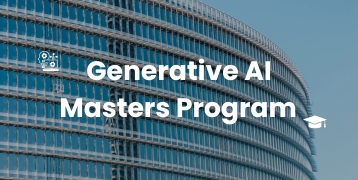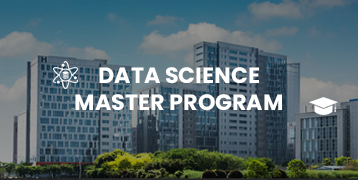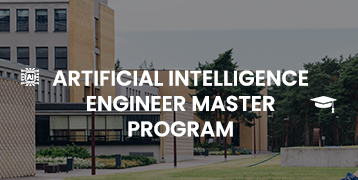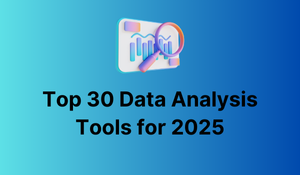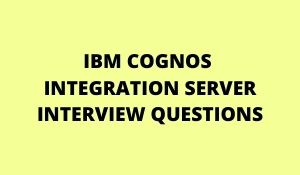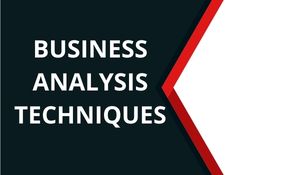
Introduction:
Many different business analysis techniques can assess and improve a company. Some techniques are more effective than others, depending on the situation. Here are the 10 most effective business analysis techniques, according to experts.
Top 10 Most Effective Business Analysis Techniques
The ultimate goal of business analysis is to maximize the value of an organization while minimizing its costs. This can be achieved by optimizing processes, increasing revenue, or decreasing cost. For any of these fundamental improvements to occur, products, services, and operations must be properly planned, managed, and executed by all levels of employees.
Business analysis practitioners need specific skills in order to succeed. The most important skills are eliciting, documenting, and managing requirements. A business analyst’s efficiency in performing this task affects the project’s overall success.
In order to help you improve your business analysis techniques, we have compiled a list of the top 10 most effective business analysis techniques that will allow you to improve your BA practice vastly.
1)Use Appropriate Level of Detail for Requirements
Business analysts often need to elicit and document a large number of functional and non-functional requirements from various stakeholders within their organization. In some cases, those requirements are very high level, while they must be extremely detailed at other times. Using an appropriate level of detail means documenting only as much as necessary to avoid unnecessary details that may become obsolete.
2)Use an Effective Requirements Management Tool
Business requirements management can easily be performed using a dedicated requirements management tool. Such tools allow you to store, organize, prioritize and control changes to all types of business requirements, including functional, non-functional, user stories, and more.
3) Collaborate with Stakeholders Early & Often
Business analysis requires close collaboration between stakeholders across various areas within the organization. By keeping your stakeholders informed throughout the software development lifecycle (SDLC), they will feel a sense of ownership in terms of the time frame and budget and reduce the chance of any surprises down the road. These benefits are realized by collaborating with stakeholders early and often during software development through effective communication channels.
4) Keep the End in Mind
It is important for business analysts to always keep the end goal of any project in mind while eliciting, documenting, and managing requirements. This will keep you focused on what needs to be achieved rather than falling into the trap of looking at all of the different details involved with performing your role. Furthermore, by keeping this fundamental concept top of mind, you can properly step back and consider various ways to achieve success using more effective methods.
5) Use Specific Requirements Management Tools
Thanks to recent advancements in technology, there are many requirements management tools available today, making it easier for developers and business analysts to collaborate on projects. Not all requirements management tools are equal, though, as some allow users greater flexibility in defining how they work. A practical requirements management tool has been designed with business analysts in mind as it must have powerful features to help you manage all of your requirements from a single location under the appropriate levels of security.
6) Use Agile Requirements Management Tools
Agile is a popular process for managing business requirements as it requires close collaboration between all areas involved in software development. Implementing an agile requirement management tool ensures that this close collaboration can occur via easy access to project information by those who need it across numerous devices and multiple locations.
7) Document All “As-Is” Business Processes & Use Cases
Documenting all existing business processes and using them during elicitation sessions ensures that stakeholders can provide valuable input regarding their current business processes. In addition, it will also help to prevent any future misunderstandings as all team members can refer back to existing documentation to understand how a particular system should work before the project moves ahead.
8) Ensure Compliance with Standards and Procedures
Each organization must have standards and procedures for conducting software development projects which ensure compliance with industry best practices. Suppose your company does not currently have such standards & procedures in place. In that case, you should develop them as they will provide a framework for eliciting, managing, and documenting requirements throughout the entire SDLC, thereby increasing the chance of project success.
ALSO READ: CONTENT MARKETING TOOLS IN 2022
9) Plan During Elicitation Sessions
During elicitation sessions where stakeholders are asked to describe their business processes as part of the requirements gathering process, it is important to have a plan in place which will help you manage all elicitation activity. This plan should be flexible so that it can change based on the current project’s needs and should include points such as general guidance for conducting elicitation activities and suggested note-taking formats throughout these sessions.
10) Be Patient & Stay Organized
Finally, effective business analysts need to have patience when working with stakeholders across various departments within an organization because their feedback during elicitation sessions won’t always provide usable information due to a number of factors, including a lack of understanding regarding what is being asked or difficulty in translating business processes into software terms. In addition, staying organized when documenting & managing requirements is crucial as it will speed up the overall process, increasing your chances of project success.
What are the Benefits of Learning Business Analysis Techniques?
Business analysis is the work undertaken to determine and communicate how a corporation can adapt or develop new business practices.
This is needed because as we move forward in time, we need our businesses to adapt and grow with us. The world around us changes, but we find ourselves struggling to keep up without adapting to those changes. This leads companies into bankruptcy and job loss. Business Analysis Techniques exist so that businesses may improve themselves without bankrupting themselves in the process of doing it.
Basic business analysis skills include problem-solving, project management, communication skills, and technical knowledge (for example, software). For more advanced tasks such as conducting interviews and workshops, you also need interpersonal skills such as active listening, questioning, and influence techniques – these are especially important if you are collaborating with business stakeholders.
Business Analysis is all about asking the right questions and then delivering the answers in the best way possible, which will help management to make informed decisions. These include decisions about what products or services they should offer to their customers, how much money is available for investment, who they want as new employees or whether they need to bring new equipment into service.
Have a Look on: Benefits of Using SEO & PPC Together
Conclusion:
The ten techniques we’ve outlined are a great starting point for your business analysis. However, as with any methodology, you should tailor the approach to fit your organization’s specific needs. These techniques can be adapted and tweaked to ensure that you get the most value from your data. Have you tried using any of these methods in your work? What has been your experience? Let us know in the comments below.
Author Bio:
Anji Velagana loves pursuing excellence through writing. He currently writes for Gologica.com, a global leader in providing the best online training to individuals who wish to take training on different abilities. He has experience of 5 years in the field of content writing. Contact him via LinkedIn.

